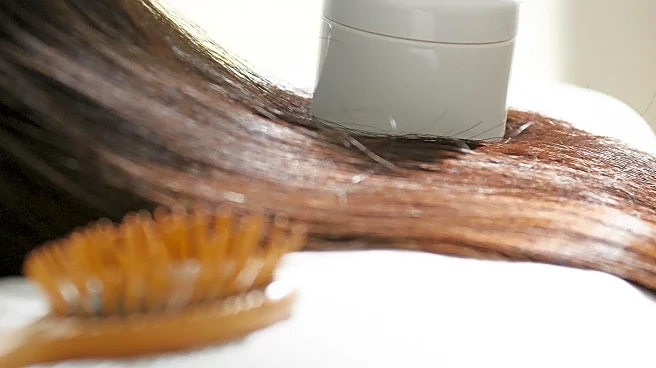What's Happening?
A recent study has identified stevioside, a compound derived from the stevia plant, as a potential enhancer for hair regrowth treatments. Researchers conducted experiments on mice using microneedle patches
infused with minoxidil and stevioside, resulting in hair regrowth in 67.5% of treated areas. The study suggests that stevioside improves the solubility of minoxidil, allowing better penetration into hair follicles. Dermatologists are cautiously optimistic but emphasize the need for further research to confirm efficacy and safety in humans.
Why It's Important?
The discovery of stevioside as a natural absorption enhancer for minoxidil could revolutionize hair loss treatments, offering a more effective solution for individuals experiencing hair thinning. This development is particularly significant for the U.S. market, where hair loss affects millions. Enhanced treatments could lead to increased consumer confidence and potentially boost sales in the hair care industry. However, the need for human trials means that widespread application is still pending, and safety concerns must be addressed.
What's Next?
Further research is required to validate the findings in human subjects and assess potential side effects. Dermatologists may begin incorporating microneedling techniques with minoxidil in clinical settings, while monitoring developments in stevioside applications. Regulatory approval and commercial production of enhanced minoxidil treatments could follow successful trials, potentially transforming the hair care market.
Beyond the Headlines
The use of natural compounds like stevioside in medical treatments highlights a growing trend towards integrating plant-based solutions in pharmaceuticals. This approach may lead to more sustainable and less chemically-intensive products, aligning with consumer preferences for natural ingredients.









